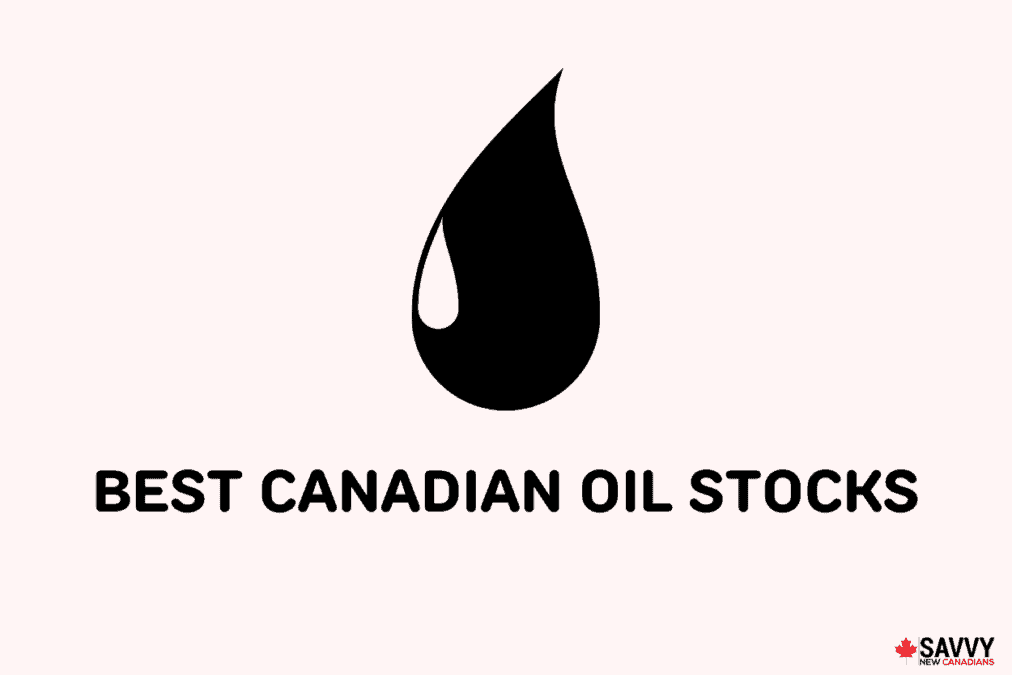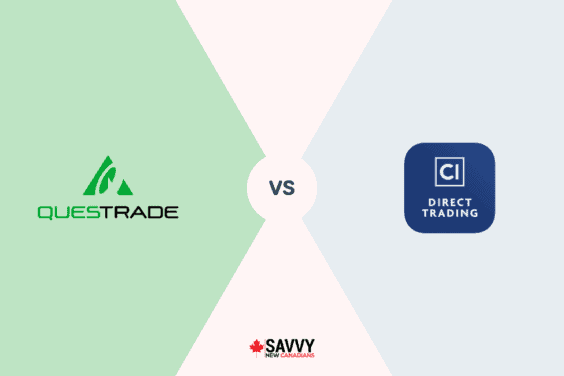Oil stocks have long been popular investments for Canadian investors. As a country rich in natural resources, the oil industry has historically been a strong component of the Toronto Stock Exchange.
Canadian oil stocks, alongside the broader energy industry, were among the best-performing industries last year. After a short period during the pandemic that saw record low prices for oil, producers cashed in with record profits in 2022, and this performance is continuing so far into 2023.
One of the reasons oil stocks performed so well last year was a global shortage in crude oil supply because of the Russian invasion of Ukraine.
In a contractionary macroeconomic environment, investors have rotated from high-growth tech stocks to high cash flow value stocks like the oil industry.
One thing that could hurt the oil industry is an impending global recession. If the economy slows, it typically leads to a fall in demand for crude oil.
In this article, I will review ten of the best oil stocks to buy right now in Canada for April 2024.
What are Oil Stocks?
The oil industry is a diverse one, and there are plenty of different types of companies that operate in it.
There are generally three specific types of oil stocks: downstream, midstream, and upstream.
An upstream oil company works in the exploration and extraction of crude oil and other fuels like natural gas.
Midstream oil companies work to store or transport oil and other fuels through pipelines and other processes.
Finally, a downstream oil company works with oil after it has been extracted and typically delivers the end product to the customer.
You can easily buy oil stock on a Canadian discount brokerage site where you can save on commission fees.
Top Oil Stocks To Buy in Canada
1. Suncor Energy
- Ticker Symbol: SU.TO
- Type of Oil Company: Integrated
- Market Cap: $59.78 billion
- PE Ratio: 6.89
- Dividend Yield: 4.63%
- 52-week Trading Range: $36.23-$53.62
Suncor Energy is a Calgary-based integrated oil company that was founded in 1919. It is dual-listed on the TSX and NYSE and is a component of the S&P/TSX 60 index.
The company is an integrated oil company which means it operates as an upstream, midstream, and downstream company.
It is one of the largest energy companies in Canada by market capitalization and pays an annualized dividend yield of 3.91%.
As of February 2023, Suncor had a trailing 12-month gross profit of more than $35 billion and is a highly free cash flow-positive company. It is an extremely stable company with a stock that rewards its shareholders well.
2. Enbridge Inc
- Ticker Symbol: ENB.TO
- Type of Oil Company: Integrated
- Market Cap: $104.28 billion
- PE Ratio: 40.35
- Dividend Yield: 6.89%
- 52-week Trading Range: $48.88-$59.69
Enbridge is a Calgary-based integrated oil company that was established in 1949. Its stock is dual-listed on the TSX and NYSE and is a component of the S&P/TSX 60 index.
The company is integrated, although a majority of its business is midstream, particularly with its pipelines that carry crude oil and natural gas.
It owns and operates the largest fuel transport pipeline system in North America. Enbridge is Canada’s largest oil company by market capitalization.
Not only is Enbridge highly profitable, but it rewards its shareholders with a generous 6.89% annualized dividend yield.
3. Canadian Natural Resources
- Ticker Symbol: CNQ.TO
- Type of Oil Company: Integrated
- Market Cap: $83.82 billion
- PE Ratio: 7.37
- Dividend Yield: 4.50%
- 52-week Trading Range: $58.75 – $88.18
Canadian Natural Resources is yet another Calgary-based oil company. It was established in 1973, and the stock is a component of the S&P/TSX 60 index.
CNQ operates primarily in Western Canada, with a bulk of its business operating in the upstream oil industry with the extraction of crude oil.
In fact, Canadian Natural Resources is the largest producer of heavy crude oil in Canada and the largest independent natural gas producer in Western Canada.
4. Cenovus Energy Inc
- Ticker Symbol: CVE.TO
- Type of Oil Company: Integrated
- Market Cap: $46.91 billion
- PE Ratio: 7.66
- Dividend Yield: 1.71%
- 52-week Trading Range: $18.19 – $31.19
Cenovus Energy is an integrated oil company based in Calgary, Alberta. The stock is dual-listed on the TSX and NYSE and is a component of the S&P/TSX 60 index.
It is the third-largest crude oil and natural gas producer in Canada. Cenovus is also the second-largest refiner and upgrader of crude oil.
The company operates primarily in the oil sands of Alberta and British Columbia but also has projects in the US in Texas and Illinois.
Cenovus kicked 2023 off with a major change as the company announced the introduction of its new CEO and former COO Jon McKenzie.
5. TC Energy
- Ticker Symbol: TRP.TO
- Type of Oil Company: Midstream
- Market Cap: $56.07 billion
- PE Ratio: 85.57
- Dividend Yield: 6.76%
- 52-week Trading Range: $52.12 – $74.44
TC Energy is a Calgary-based midstream oil pipeline company founded in 1951. Its stock is a component of the S&P/TSX 60 index.
The company currently operates six different major pipeline projects across North America. TC Energy operates over 93,000 kilometres in natural gas pipelines and 4,900 kilometres in liquid oil pipelines.
It is also branching out into renewable energies with a hydrogen hub it partnered with Nikola Motors to create.
TC Energy has repaid its shareholders well with 23 consecutive years of dividend raises with an anticipated future annual growth of 3-5%. The company announced it will be raising its dividend by 3.3% at the end of March.

6. Tourmaline Oil Corp
- Ticker Symbol: TOU.TO
- Type of Oil Company: Upstream
- Market Cap: $19.57 billion
- PE Ratio: 3.58
- Dividend Yield: 1.73%
- 52-week Trading Range: $45.88 – $84.33
Tourmaline Oil Corp is a Calgary-based oil and gas company that was founded in 2008. It is a relatively new company, but by 2021, Tourmaline became Canada’s largest natural gas producer.
This company primarily focuses on the Alberta Basin, the Peace River oil sands, and the Montney Formation for the production of crude oil and natural gas.
The stock pays a lower dividend yield than other companies on this list, with a 1.73% annualized yield.
7. Gibson Energy Inc
- Ticker Symbol: GEI.TO
- Type of Oil Company: Integrated
- Market Cap: $3.32 billion
- PE Ratio: 15.47
- Dividend Yield: 6.72%
- 52-week Trading Range: $21.15 – $27.75
Gibson Energy Inc is another Calgary-based oil company that was established in 1950.
This company does a little bit of everything in the oil and gas industry. Gibson operates pipelines which aid in the transportation and distribution of oil.
It also stores, blends, processes, and refines oil and gas products. This makes Gibson an integrated oil company.
Gibson is trading at the low end of its 52-week trading range as of February 2023, with a 6.72% annualized dividend yield.
8. Imperial Oil Ltd
- Ticker Symbol: IMO.TO
- Type of Oil Company: Integrated
- Market Cap: $40.71 billion
- PE Ratio: 6.87
- Dividend Yield: 2.62%
- 52-week Trading Range: $52.28-$79.83
Imperial Oil is a Calgary-based integrated oil company that was established in 1880 and is a component of the S&P/TSX 60 index.
The company is majority-owned by the US-based Exxon-Mobil, which owns a 70% stake in Imperial Oil.
It owns approximately 25% of Syncrude, which is one of the largest oil sands in the world. It also owns a significant stake in the Norman oil fields in the Northwest Territories.
Imperial Oil is also moving into the hydrogen industry as the demand for renewable energy rises.
9. Crescent Point Energy
- Ticker Symbol: CPG.TO
- Type of Oil Company: Upstream
- Market Cap: $5.15 billion
- PE Ratio: 2.55
- Dividend Yield: 4.32%
- 52-week Trading Range: $7.57 – $13.74
Crescent Point Energy is a Calgary-based oil and gas exploration company founded in 2001. Its stock is dual-listed on the TSX and NYSE.
The company operates oil and gas exploration projects across Saskatchewan, Alberta, and North Dakota.
It has an annual production rate of about 133,000-137,000 barrels of oil per day for 2022.
10. Pembina Pipeline
- Ticker Symbol: PPL.TO
- Type of Oil Company: Midstream
- Market Cap: $24.82 billion
- PE Ratio: 9.35
- Dividend Yield: 5.80%
- 52-week Trading Range: $41.31 – $53.58
Pembina Pipeline is a Calgary-based oil and gas pipeline company founded in 1954. Its stock is dual-listed on the TSX and NYSE and is a component of the S&P/TSX 60.
It operates two main pipeline systems: one in Alberta and one in British Columbia. These transport crude oil and natural gas.
The company is moving into renewable energies with wind farms, hydrogen, and hydro energy, as well as increasing investments in LNG.
How To Buy Canadian Oil Stocks for Cheap
Canadian investors can easily buy the best oil stocks using discount brokerages in Canada.
Questrade
This platform is Canada’s oldest and largest discount brokerage. It offers Canadian investors the ability to buy stocks, ETFs, mutual funds, options, bonds, and other investment assets.
For stock trading, Questrade offers buy orders for as low as $0.01 per share with a minimum order of $4.95 per order and a maximum of $9.95 per order.
Questrade

Trade stocks, ETFs, options, FX, bonds, CFDs, mutual funds, etc.
Get $50 trade credit with $1,000 funding
Low and competitive trading fees
No quarterly inactivity fees
Access to advanced tools and trading data
Top platform for advanced traders
Transfer fees waived
Wealthsimple Trade
Established in 2014, Wealthsimple Trade is a discount brokerage that is quickly gaining popularity amongst younger Canadian investors.
It offers numerous investment assets, including stocks, ETFs, and cryptocurrencies.
This platform does not charge a trading fee for stock and ETF trades.
Wealthsimple Trade

Trade stocks, ETFs, and options
Excellent trading platform for beginners
Deposit $150+ to get a $25 cash bonus
Transfer fees waived up to $150
Are Oil Stocks a Good Investment?
Canadian oil stocks are some of the strongest investments and best stocks on the TSX.
A lot of oil stocks have high cash flow and are extremely profitable. This means they can afford to pay generous dividend yields to shareholders.
Energy stocks and ETFs did well in 2022 as the market rotated back to cyclical and value sectors.
Oil stocks can provide stability for your portfolio while adding the cash flow of steady dividends.
Downsides of Investing in Oil Stocks
In general, oil stocks are considered to be value stocks, so you won’t see high future capital growth.
Most oil stocks trade in sympathy with the price of oil futures contracts. If the price of oil or demand for oil falls, it could affect the price of Canadian oil stocks.
Investing in one industry can always be a risk. It’s better to have oil stocks as a small portion of your overall portfolio.
Conclusion
Oil stocks are some of the best Canadian stocks on the TSX.
The energy industry has been a high performer this year and has provided stability to portfolios.
Canadian oil stocks pay some of the best dividend yields on the market and perform well when the oil industry is.
If you are looking to add some exposure to oil stocks, you can easily buy them at Canadian discount brokerages like Questrade or Wealthsimple Trade to save on fees.






